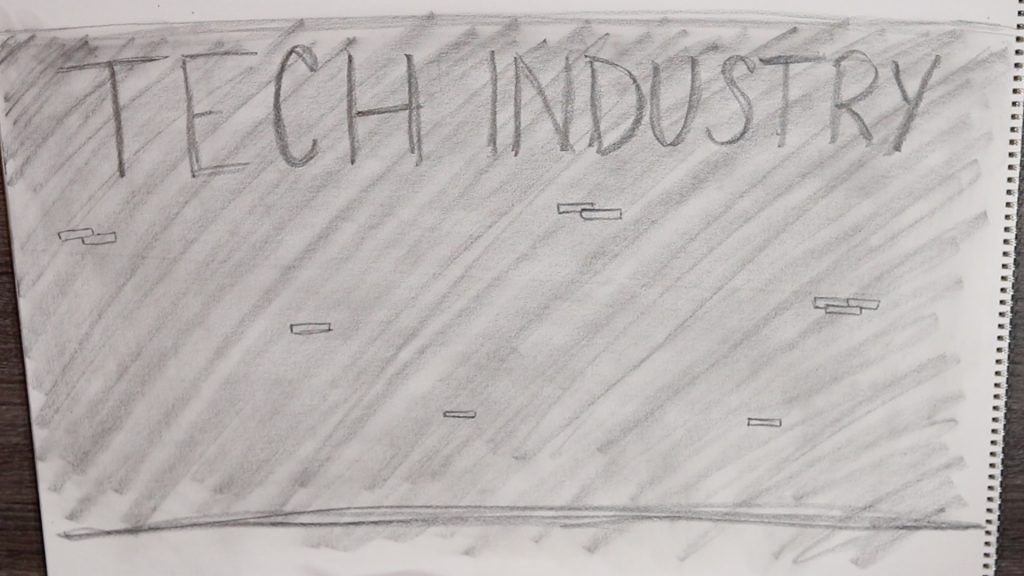Katlyn Beck, one of our awesome developers and apprenticeship development assistants, has a theory. What if confidence isn’t the key to success, but rather, success is the key to confidence? How do you forge and build on those first successes in order to grow more confident in your self, your career and your life?
She shares her wisdom in our latest contribution to Thrive Global. You can read the full piece below.
Where faking it ends and making it begins
Why success leads to confidence, not the other way around
As a kid, Matilda, the Roald Dahl title character, was my hero. Here was a girl who could control the world around her and make it as she wanted. I lacked that self-confidence, and telekinetic abilities. But, when I put on my overalls, my “Matildas” as I called them, I could pretend to make things the way I wanted.
Thinking back, this was really the first instance I, unknowingly at the time, used the “fake it until you make it” mantra. By stepping outside of myself, embodying another character, one that I wanted to be, I felt able to do everything I was usually too scared to do. I could boss people around. I could make important decisions. I could be the best me.

I’ve since outgrown my “Matildas,” but not the sense of empowerment they provided. I’ve developed strategies and skills, other than wearing magical overalls, to help me advance in my career, even when I have moments of self-doubt or feel like an imposter.
Getting over walls of intimidation
I am a software engineer, something I never thought I’d be able to say. The tech industry was always for others smarter or more confident than me. I had this vivid image in my mind of the “Great Wall of Tech Industry,” this very looming, very impassible, solid obstacle that few could get past.
Part of this intimidation was math. I really like math, but math never really seemed to like me. While I had an engineering mind – I would take apart radios in my dad’s workshop to see how they operated – the math requirements of a computer science degree just seemed too much.
How could I find my way into tech? I couldn’t move the wall out of the way – seriously, Roald Dahl, why did you have to give us all hope of special powers? – so I looked for other routes. By researching alternatives, laying a foundation for success and seeking out mentors to help in my journey, I was able to work my way around the obstacle.

“Fake it until you make it” isn’t always linear progression. In my case it involved community college, learning managerial skills at Starbucks, university course work in library sciences, taking an online assessment, then training and finally employment as a developer at Catalyte.
Each step prepared me for the next and allowed me to transition into the person I knew I wanted to be at a pace I could handle. This reduced the intimidation level for each transition and helped me build confidence along the way.
Support others along their journeys
I’m lucky to work in a supportive office environment. Many of my coworkers come from backgrounds that aren’t traditional in the tech industry. So we know what it’s like, collectively, to fight imposter syndrome. Do I belong here? Am I good enough? When will my luck run out? These are all thoughts that we deal with, and work together to overcome.
The best cure for imposter syndrome is to foster an environment where no one is afraid to say, “I don’t know,” to a question or a problem. From executives on down, building a company culture that values openness and vulnerability goes a long way to showing employees that everyone is on a journey, not frozen in a perfect end state.
Don’t use problems and obstacles to set people up to fail. Use them to promote peoples’ growth. Any barrier I smash, or software bug I fix, I feel a rush of, “I CAN DO ANYTHING!!!” energy. It’s the best feeling in the world and a great cure to imposter syndrome, if only until the next bug is found.
Don’t punish lack of knowledge. Reward learning and encourage self-improvement. Too often, imposter syndrome manifests in aggression or hostility because of insecurity. “Unless I know everything, my boss will think I know nothing.” This limits growth, both at the employee and corporate level, as people are incentivized not to mess up and put others down, rather than take risks and succeed together.
A few weeks ago I was talking to a coworker and offered some of my “fake it until you make it” advice. He responded, “That’s great if you have confidence.” I laughed. I never thought I’d be someone others think is overflowing with confidence. High school me is so excited to hear that, but still not confident enough to show it.
Confidence isn’t what gives you success. Success is what gives you confidence. Figure out what works for you to achieve that first success and build on it. Repeat until you don’t know where faking it ends and making it begins.


